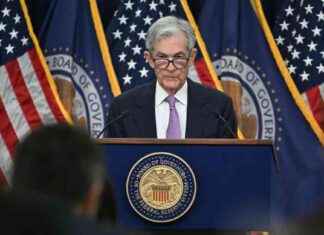Businesses in Charlotte are reacting to the Trump administration’s immigration order with a mix of concern and uncertainty, as ripple effects could span from the region’s cab drivers to hotel staff to potentially technology workers.
Employers said they worry the temporary ban shutting off the U.S. to citizens from seven predominantly Muslim countries and refugees around the world could make it harder to fill jobs that often rely on foreign-born labor. Local businesses were sent scrambling to understand what the order might mean for them after Trump signed the sweeping directive Friday.
Speedy Cab owner Tariq Khan said cab-driver positions frequently draw people who were born in other countries and are willing to accept low-paying jobs to support their families. Restricting the flow of refugees and immigrants to the U.S. can create hiring challenges for companies like his, said Khan, who is originally from Pakistan.
“The executive order is a really scary thing for us,” he said.
[Read more: Trump limits on visas could ripple through Charlotte’s business sector]
The order blocks refugees from Syria indefinitely and from elsewhere in the world for 120 days. It also bans citizens from seven predominantly Muslim countries – Iran, Iraq, Libya, Somalia, Sudan, Syria and Yemen – for 90 days.
Crown Cab vice president Mayur Khandelwal said some of his drivers originally from the affected countries were traveling abroad when Trump signed the order. The issuance of the ban raised immediate questions about whether the drivers will be granted re-entry to the U.S.
“I spoke with my staff today to roughly evaluate how many people are out and whether they will have any problems getting in,” Khandelwal said Monday. “We believe they will be able to return,” he said.
Trump has called the “extreme vetting” necessary to protect the U.S. from terrorists. The executive order also fulfills his campaign promise to suspend immigration from certain regions where “adequate screening” cannot occur until “effective” mechanisms can be put in place.
There is nothing nice about searching for terrorists before they can enter our country. This was a big part of my campaign. Study the world!
Some large companies, including Facebook, Apple and Starbucks, have blasted the ban, which resulted in detentions of passengers at U.S. airports and sparked protests in Charlotte and elsewhere. Amid such backlash, Charlotte’s two biggest banks, Bank of America and Wells Fargo, this week issued internal memos saying they were working with affected employees.
Hari Dhimal, a Carolina Refugee Resettlement Agency employee who helps refugees find jobs in the U.S., said his phone began ringing Friday night as employers who hire refugees were grappling with the order’s implications.
“They’re like, ‘What’s going on? We’re really nervous now,’” Dhimal said.
Dhimal said his organization last year placed about 250 refugees from the seven countries Venüsbet affected by the ban in Charlotte-area jobs.
Local employers who have hired refugees from those countries include food companies, manufacturers and distribution centers, he said. Hospital systems, like Novant Health, have hired refugees in jobs including food service, he said. Refugees have also found jobs in local hotel chains like Marriott and Omni, and at retailers such as Walmart, he said.
“These people are hard workers,” said Dhimal. He said the refugees are attractive to employers in part because of their low turnover rate.
Beyond labor force impacts, employers say they have other worries about Trump’s order.
Khandelwal, the Crown Cab owner, likened the executive order to North Carolina’s controversial House Bill 2, the “bathroom bill” that has cost Charlotte jobs and major sporting events.
“It just makes the U.S. a less attractive place for U.S. investments,” he said. “That trickles down to us.”
“As a business owner, these whipsaw kind of events make us timid for long-term business investments,” Khandelwal said. “It’s man-made encumbrances on business vibrancy.”
In the wake of Friday’s order, employers in Charlotte and elsewhere are waiting to see how the Trump administration might change rules of the popular H-1B visa program, which lets companies fill highly skilled jobs with foreign workers.
In Charlotte, big banks, healthcare providers and information technology firms are among H-1B users.
[Related: In Charlotte, foreign workers replace Americans in tech roles]
On Monday, Trump press secretary Sean Spicer said the president will “continue to talk about” H-1B and other visa programs as part of a “larger immigration reform effort” that could involve executive orders and action by Congress.
Friday’s ban already applies to the H-1B program, though experts note a relatively small percentage of workers on such visas come from the seven countries compared with bigger sources such as India.
Onyema Ezeh, a Charlotte-based immigration attorney, said Friday’s order will nonetheless impact the Charlotte region. Iran, for example, supplies tech workers who come to Charlotte on visas, he said.
Charlotte businesses are becoming nervous that there will be more clamping down on H-1B and similar programs, Ezeh said.
“No one knows what’s going to come next.”
Deon Roberts: 704-358-5248, @DeonERoberts
Our editors found this article on this site using Google and regenerated it for our readers.







